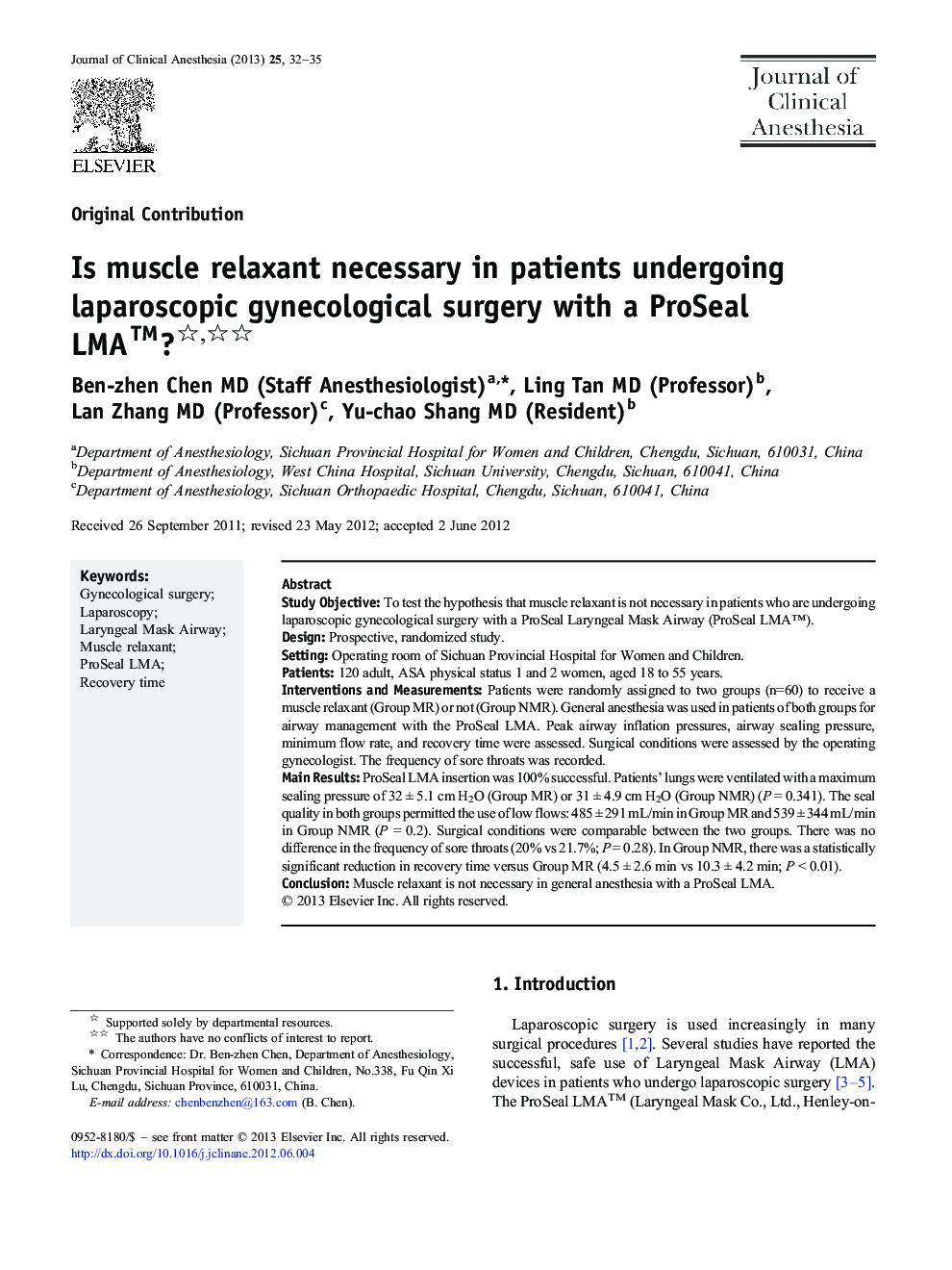| Article ID | Journal | Published Year | Pages | File Type |
|---|---|---|---|---|
| 2762544 | Journal of Clinical Anesthesia | 2013 | 4 Pages |
Study ObjectiveTo test the hypothesis that muscle relaxant is not necessary in patients who are undergoing laparoscopic gynecological surgery with a ProSeal Laryngeal Mask Airway (ProSeal LMA™).DesignProspective, randomized study.SettingOperating room of Sichuan Provincial Hospital for Women and Children.Patients120 adult, ASA physical status 1 and 2 women, aged 18 to 55 years.Interventions and MeasurementsPatients were randomly assigned to two groups (n=60) to receive a muscle relaxant (Group MR) or not (Group NMR). General anesthesia was used in patients of both groups for airway management with the ProSeal LMA. Peak airway inflation pressures, airway sealing pressure, minimum flow rate, and recovery time were assessed. Surgical conditions were assessed by the operating gynecologist. The frequency of sore throats was recorded.Main ResultsProSeal LMA insertion was 100% successful. Patients’ lungs were ventilated with a maximum sealing pressure of 32 ± 5.1 cm H2O (Group MR) or 31 ± 4.9 cm H2O (Group NMR) (P = 0.341). The seal quality in both groups permitted the use of low flows: 485 ± 291 mL/min in Group MR and 539 ± 344 mL/min in Group NMR (P = 0.2). Surgical conditions were comparable between the two groups. There was no difference in the frequency of sore throats (20% vs 21.7%; P = 0.28). In Group NMR, there was a statistically significant reduction in recovery time versus Group MR (4.5 ± 2.6 min vs 10.3 ± 4.2 min; P < 0.01).ConclusionMuscle relaxant is not necessary in general anesthesia with a ProSeal LMA.
